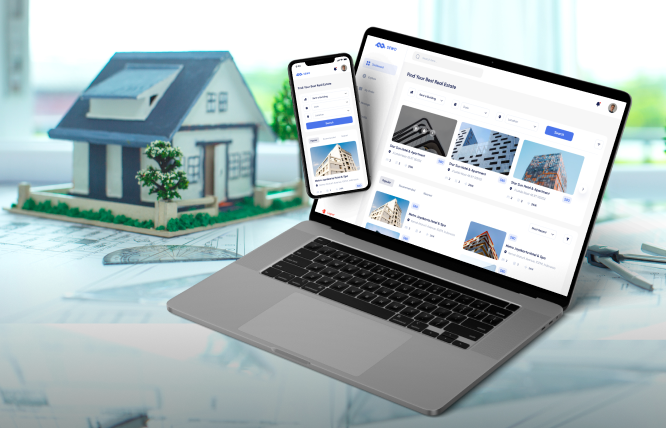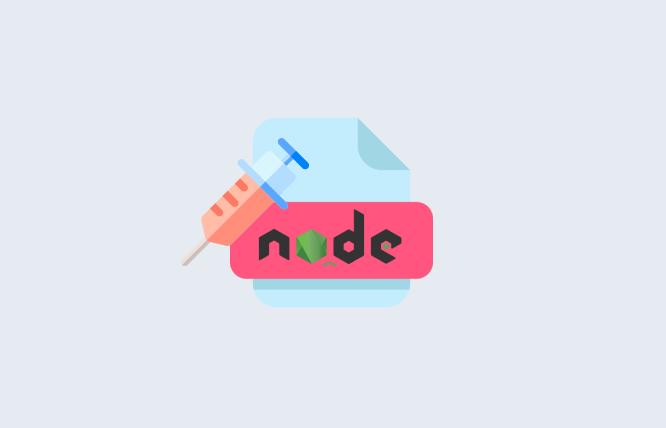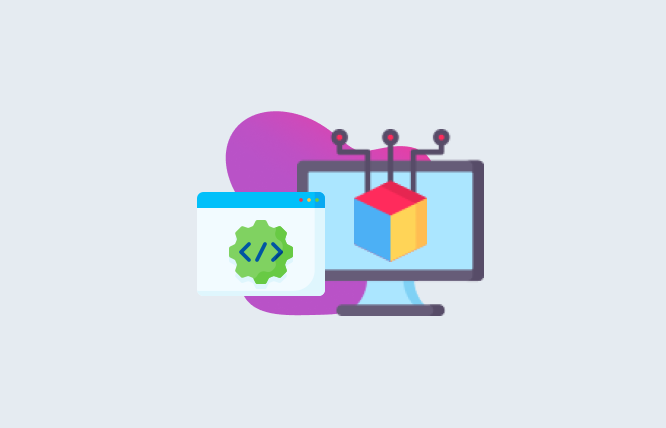Best CRM for Real Estate: Top Picks to Boost Your Business
CRM systems are crucial for the real estate industry to improve sales and conversions. In this article, we will discuss the best CRM systems for the real estate industry and the impact of custom CRM solutions in growing real estate businesses.
A Customer Relationship Management (CRM) system can help you deal with customers in a way that promotes sales and boost returning customers. This is no different in the real estate market. According to MindK, real estate businesses that have incorporated a CRM system have seen growth in sales (29%), sales productivity (34%), sales accuracy (42%) and conversions (300%).
This shows that integrating a CRM system to your real estate business can have huge returns, but which one should a business choose? In this article, we will discuss the best CRM systems for real estate, the functionality they offer and how a custom CRM can be beneficial.
Best CRM for Real Estate Businesses
There are several options in the market when it comes to CRM systems designed specifically for the real estate industry. We have selected the top best business management software in the market for this blog.
Following is a table that mentions top features of these CRMs:
| CRM System | Key Functionality |
Wise Agent | Lead Management, Transaction Management, Marketing Automation |
LionDesk | Multi-channel Communication, Lead Nurturing, Task Management |
Realvolve | Workflow Automation, Contact Management, Reporting & Analytics |
Follow Up Boss | Lead Routing, Contact Management, Email Templates |
Top Producer | MLS Integration, Contact Management, Marketing Automation |
Market Leader | Lead Generation, CRM, Marketing Automation |
Propertybase | Lead Management, CRM, MLS Integration, Marketing Automation |
Now that we know the top functionalities of each of these CRM systems, let’s discuss in detail what each system offers and the pros and cons for each.
Wise Agent
Wise Agent is a comprehensive CRM system designed specifically for real estate professionals. It offers robust lead management, transaction management, and marketing automation features to streamline the workflow of real estate agents.
Pros:
- Intuitive user interface
- Excellent customer support
- Seamless integration with other real estate tools
Cons:
- Limited customisation options
- complex for beginners to navigate initially
LionDesk
LionDesk provides a multi-channel communication platform for real estate agents, enabling them to nurture leads effectively. It supports email, SMS, and video communication, along with task management and lead nurturing features.
Pros:
- Strong multi-channel communication capabilities
- Effective lead nurturing tools
- User-friendly interface
Cons:
- Occasional syncing issues with third-party integrations
- Limited advanced reporting features
Realvolve
Realvolve offers powerful workflow automation and contact management features. It is designed to help real estate agents manage their transactions and client relationships more efficiently through customisable workflows and robust reporting tools.
Pros:
- Highly customisable workflows
- Strong reporting and analytics
- Effective contact management
Cons:
- Steeper learning curve for new users.
- Higher price point compared to some competitors.
Follow Up Boss
Follow Up Boss focuses on lead routing, contact management, and email templates. It helps real estate agents manage their leads and follow-up activities, ensuring no lead falls through the cracks.
Pros:
- Efficient lead routing
- Easy-to-use contact management
- Customisable email templates
Cons:
- Limited marketing automation features
- Integration can sometimes be challenging
Top Producer
Top Producer offers a robust set of features including MLS integration, contact management, and marketing automation. It is designed to help real estate agents stay organised and manage their client relationships effectively.
Pros:
- Strong MLS integration
- Comprehensive contact management
- Effective marketing automation
Cons:
- Outdated user interface
- Expensive for small teams
Market Leader
Market Leader provides lead generation, CRM, and marketing automation tools specifically for real estate agents. It helps agents generate and manage leads effectively, with tools to automate their marketing efforts.
Pros:
- Excellent lead generation tools
- Comprehensive CRM features
- Strong marketing automation
Cons:
- Pricey for small teams
- Some features can be difficult to use initially
Propertybase
Propertybase combines lead management, CRM, MLS integration, and marketing automation into a single platform. It is designed to help real estate professionals streamline their workflow and improve their efficiency.
Pros:
- Strong lead management features
- Comprehensive CRM capabilities
- Effective MLS integration and marketing automation
Cons:
- Higher price point
- Can be complex to set up initially
Off-the-Shelf CRM vs Custom CRM
There is another alternative to CRM systems, and it is not an existing system already on the market. Creating a real estate development software will not only offer you the functionality you need but also create long-term cost effectiveness.
The following table will discuss the differences between off-the-shelf CRM systems and custom CRM systems:
| Feature | Off-the-Shelf CRM Systems | Custom CRM Systems |
| Cost | Generally lower upfront costs; subscription-based | Higher initial development cost; long-term cost savings |
| Implementation Time | Quick implementation; ready to use | Longer development time; tailored to specific needs |
| Customisation | Limited customisation options | Fully customisable to meet specific business requirements |
| Scalability | May have limitations on scalability | Highly scalable; can grow with the business |
| Maintenance | Vendor-managed updates and support | Requires in-house or third-party support |
| Features and Functionality | Standard features; may include unnecessary tools | Specific features tailored to business processes |
| Integration | Standard integrations with popular tools | Custom integrations with existing systems |
| User Training | Standardised training and documentation | Custom training based on tailored features |
| Flexibility | Less flexible; bound by vendor’s development cycle | High flexibility; can adapt to changing business needs |
| Vendor Dependency | Dependent on vendor for updates and support | Full control over updates and support |
| Security | Standard security protocols | Customisable security features based on specific needs |
| Updates and Upgrades | Regular updates from vendor | Updates as required, controlled by the business |
Benefits of Custom CRM Systems
Tailored to Business Needs
Custom CRM systems can be designed to address the unique requirements and workflows of your business. Unlike off-the-shelf solutions, which may come with features that are irrelevant or unnecessary for your business, a custom CRM ensures that every aspect of the system aligns with your operational needs, resulting in increased efficiency and productivity.
Scalability
As your business grows, so will your CRM needs. Custom CRM systems are built with scalability in mind, allowing for seamless integration of new features and functionalities as required. This adaptability ensures that the CRM evolves with your business, supporting your growth without the need for frequent system changes.
Enhanced Integration Capabilities
Custom CRM systems can be easily integrated with other business applications and systems that your company uses, such as ERP, marketing automation, or financial software. This level of integration helps create a unified ecosystem, streamlining data flow and improving overall business processes.
Improved Data Security
With a custom CRM, you have full control over the security protocols and measures implemented to protect sensitive customer data. This control allows for the implementation of robust security features that adhere to industry standards and specific business requirements, reducing the risk of data breaches and ensuring compliance with data protection regulations.
User-Friendly Interface
A custom CRM can be designed with your team’s specific preferences and usage patterns in mind, resulting in a more intuitive and user-friendly interface. This ease of use can lead to higher adoption rates among employees and more efficient use of the system overall.
Cost Efficiency in the Long Run
Although the initial development cost of a custom CRM may be higher than purchasing an off-the-shelf solution, the long-term benefits often outweigh the initial investment. By eliminating unnecessary features and reducing the need for additional software purchases or customisations down the line, a custom CRM can be a more cost-effective solution over time.
Competitive Advantage
By having a CRM system that is uniquely tailored to your business, you can gain a competitive edge in your industry. The custom features and functionalities provide better insights, more efficient customer interactions, and enhanced customer service, all of which contribute to building stronger customer relationships and improving overall business performance.
Conclusion
A CRM system for the real estate industry is crucial to grow sales and improve conversions. Studies have shown the impact of these CRM systems specifically for the real estate industry. The difference is made when it comes to choosing the right CRM system.
While there are multiple options in the market, businesses in the real estate industry always have the option to get a custom CRM system. This is where FuturByte comes into play. Contact us today and get a free consultation on how FuturByte can serve as a leading custom CRM development company, helping your business grow.
Frequently Asked Questions
A CRM benefits real estate agents by streamlining their workflow, helping them manage contacts, track leads, schedule appointments, automate marketing campaigns, and stay organised. It provides insights into customer preferences, helping agents tailor their services to meet client needs effectively.
Key features of a real estate CRM include lead management, contact management, email marketing, task and appointment scheduling, document storage, transaction management, MLS integration, reporting and analytics, and mobile accessibility.
A CRM improves lead management by capturing leads from various sources, such as websites, social media, and referrals, and organising them in one place. It allows agents to track lead status, follow up with potential clients, and nurture leads through automated marketing campaigns until they are ready to make a purchase.
Yes, most real estate CRMs can integrate with other tools and platforms, such as MLS databases, email marketing services, document management systems, accounting software, and social media platforms. This integration helps create a seamless workflow and ensures that all relevant data is easily accessible.
MLS (Multiple Listing Service) integration allows a CRM to connect with MLS databases, providing real-time access to property listings. This feature is important because it enables real estate professionals to stay updated with the latest listings, share accurate information with clients, and efficiently manage property transactions.
Have questions or feedback?
Get in touch with us and we‘l get back to you and help as soon as we can!





